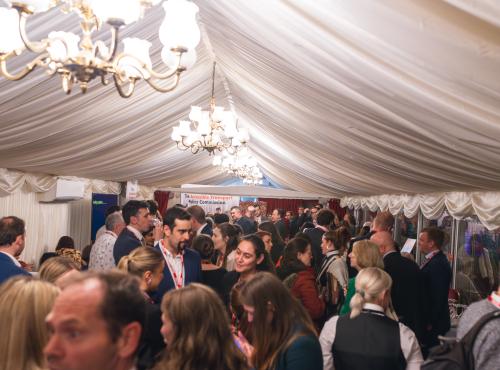Summary: BEIS Select Committee issues first industrial strategy report
The Business, Energy and Industrial Strategy (BEIS) Select Committee has today issued its first report on the industrial strategy, largely based on proposals from the government's Green Paper.
The Select Committee consists of Mr Iain Wright MP (Labour, Hartlepool, Commitee Chair, and member of the All-Party Parliamentary Manufacturing Group), Richard Fuller MP (Conservative, Bedford), Peter Kyle MP (Labour, Hove), Amanda Milling MP (Conservative, Cannock Chase), Albert Owen MP (Labour, Ynys Môn), Amanda Solloway MP (Conservative, Derby North), Michelle Thomson MP (Independent, Edinburgh West), Kelly Tolhurst MP (Conservative, Rochester and Strood), Craig Tracey MP (Conservative, North Warwickshire), Anna Turley MP (Labour (Co-op), Redcar), Chris White MP (Conservative, Warwick and Leamington, and Chair of the All-Party Parliamentary Manufacturing Group).
The report concludes that:
But while the Government’s rhetoric marks a step change, and the creation of a newDepartment for Business, Energy and Industrial Strategy has significantly raisedexpectations, the Government’s approach appears to be evolutionary and reflects acontinuation of policy approaches introduced from May 2015—a focus on horizontalpolicies, regional devolution, and sectoral “deals”. As it stands, there is a real risk thatcertain proposals benefit incumbents while lacking the multiplier-effect that a goodstrategy can deliver through bringing greater coherence and focus to policy objectives...
We recommend that the Government reconsider giving sectoral strategies priority andinstead focus on horizontal policies and specific ‘missions’ to meet UK-wide and localpublic policy challenges. This will make clear that the function of the Government’sindustrial strategy–and of industry itself–is to solve societal problems and it will providea clear focus for activity across Government and industry.In conclusion, we urge the Government to continue to be ambitious developing itsindustrial strategy and ensuring that it remains true to the vision of achieving aneconomy that works for everyone.
Industrial Strategy:First Review; BEIS Select Committee
Interestingly, the document spans several topics that our All-Party Parliamentary Manufacturing Group, All-Party Parliamentary Group for Education & Skills, the Skills Commission, and the All-Party Parliamentary Design & Innovation Group.
At the Britain's Future Workforce (with the APGSE and APMG) meeting, which featured Iain Wright MP and Neil Carmichael MP (Chair of the Education Select Committee) agreed that "ensuring that there is the pipeline of skills to enable us to greater integrate manufacturing processes with services, will be vital if we are to make a success of this, and crucially, if we are to rebalance the economy so it works for everyone”, and "it’s about embedding innovation into the long term and the education system needs to be better geared towards this. The local national point is also exactly right, we must hone in on collaboration with industry to create a national collective model of delivery... The post-war stimulus involved investing in bricks and mortar, but today it must be people." (These comments are reflected in the below assessments.)
The Skills Commission has recently seen success in two of its recent report recommendations (from Spotlight on... young people with below average academic attainment and the skills sector, September 16, "learners must be made aware of all the different post-16 pathways available to them, including Apprenticeships." and Going Places: innovation in further education & skills, December 16, "“FE and skills providers should use their physical space and assets to become skills hubs for local businesses, and serve as incubators for their learners’ next career steps") being adopted in Lord Baker's amendment to the Technical and Further Education Bill, which reflects the two Select Committee chairs' mutual agreement that innovation needs to be embedded in the education system long term, and collaboration with industry can deliver a national model of delivery.
Lord Baker of Dorking tabled an amendment to the Technical and Further Education Bill which now means that schools “must ensure that there is an opportunity for a range of education and training providers to access registered pupils during the relevant phase of their education for the purpose of informing them about approved technical education qualifications or apprenticeships”. This also means that students will be able to access better Information Advice and Guidance (IAG) to better make career decisions beyond the typical A-Levels > Higher Education.
Also, in its Building on Industrial Strategy Green Paper, the Government outlined that it would “take further actions to address differences in skill levels between different areas”, something which has been recommended in the Going Places: innovation in further education & skills inquiry report; the Select Committee highlights this further saying that "We recommend that the Government consider the potential for greater devolution of responsibility and funding for skills to local authorities and Local Enterprise Partnerships, who are well placed to work to identify regional needs and design appropriate solutions."
Further, the Skills Commission is now preparing to publish its second Spotlight on... report, which focuses on the continual needs of those in the 50+ category of the working age sector. The BEIS Committee suggests that working age training is central to the delivery of a governmental industrial strategy.
The BEIS Select Committee reports says:
"It is deeply disappointing that the Green Paper fails to outline any detailed proposals for discussion in relation to encouraging the uptake of STEM subjects, and improving the skills of those already of working age. These will need to be addressed far more comprehensively in the White Paper. We welcome commitment to a proper system of technical education, linked to local needs, but it is unclear how this actually goes beyond proposals contained in the previous Productivity Plan. The Government needs to set out more detail about how it will achieve parity of esteem between vocational and academic training in practice."
The All-Party Parliamentary Design & Innovation Group submitted a series of recommendations on research and development, particularly angled towards the design industry and design part of the supply chain, to the Treasury in Autumn 2016:
"We therefore call for the Chancellor and HM Treasury to guarantee the future of R&D Tax Credits, to improve how they are promoted to businesses, and to consider expanding their scope... The DBA and APDIG therefore call for a full review of how R&D tax credits are promoted to businesses, both on publicly available resources such as GOV.uk, as well as to accountancy firms. In particular – design agency noted considerable ambiguity regarding which companies are eligible to claim R&D tax credits, limiting the effectiveness in which they can approach key projects. By improving the clarity of this aspect of the tax system – design agencies will be in a much better position to approach new projects and bid for key contracts, allowing innovation to be rewarded and mitigating negative outcomes."
The BEIS Select Committee report said:
"We welcome the fact that the Government has launched a review of the tax environment for R&D... As part of its review of the tax environment for R&D, the Government shouldnot shy away from ambitious measures to ensure additionality. These could potentiallyinclude: requiring reinvestment of tax saved in R&D, requiring year on year increasesin R&D budgets, and/or a tapered rate with greater tax relief on larger investmentsproportionate to company size/turnover. These are suggested areas for exploration ratherthan specific policy recommendations. We recognise that each of these options would needconsidering in more detail to identify and address any risks of unintended consequences."



